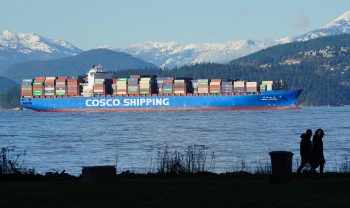International trade is a fundamental aspect of the global economy, encompassing the exchange of goods, services, and capital across national borders. It has been a key driver of economic growth, development, and globalization, shaping the world as we know it today. In this article, we will explore the concept of international trade, its benefits, challenges, and its impact on various stakeholders.
At its core, international trade refers to the buying and selling of goods and services between countries. It involves the exchange of products and services that are produced in one country and consumed in another. These exchanges can take various forms, such as exports (goods and services sold to foreign countries) and imports (goods and services purchased from foreign countries). International trade can occur through bilateral or multilateral agreements, such as free trade agreements, World Trade Organization (WTO) rules, or regional trade blocs.
International trade has numerous benefits. One of the primary advantages is the opportunity for countries to specialize in producing goods and services in which they have a comparative advantage, meaning they can produce them more efficiently and at lower costs compared to other countries. This leads to increased economic efficiency and productivity, as resources are allocated more effectively. It also enables countries to access a wider range of goods and services that may not be available or affordable domestically, thus improving the standard of living for their citizens.
Moreover, international trade can foster economic growth and development. By expanding markets beyond domestic borders, countries can increase their export revenues and create employment opportunities. This can drive technological innovation, enhance competitiveness, and stimulate economic growth. Foreign direct investment (FDI), which is the cross-border investment by companies, is another aspect of international trade that can contribute to economic development by promoting capital inflows, technology transfer, and employment creation.
International trade also promotes diplomatic relations and peaceful cooperation among nations. Trade can serve as a platform for dialogue and negotiation, as countries seek to resolve trade disputes, establish trade agreements, and build economic partnerships. It can foster mutual understanding, trust, and collaboration, which can contribute to stability and peace in the international arena.
So what does this mean in terms of International Trade Careers?
With a diploma in international trade, you may qualify for a variety of job titles depending on your skills, experience, and the specific industry or sector you are interested in. Some potential job titles for someone with a diploma in international trade may include:
- International Trade Specialist
- Export/Import Coordinator
- Trade Compliance Analyst
- Customs Broker
- International Sales Representative
- International Marketing Coordinator
- Global Supply Chain Coordinator
- International Trade Consultant
- Trade Finance Specialist
- Logistics Coordinator
- International Trade Compliance Manager
- Trade Operations Analyst
- International Trade Compliance Analyst
- Export/Import Administrator
- International Trade Compliance Coordinator
These job titles can be found in various sectors such as manufacturing, logistics, transportation, finance, consulting, and government agencies involved in international trade. It’s important to note that job titles and responsibilities may vary by employer and location, so it’s essential to research the specific requirements and expectations of the job market in your area. Networking, gaining practical experience, and continuing education may also help you enhance your career opportunities in the field of international trade.
For more information on careers in international trade, or for information on our International Trade and Freight Forwarding Diploma, fill out the form below and an Educational Advisor will contact you shortly.





